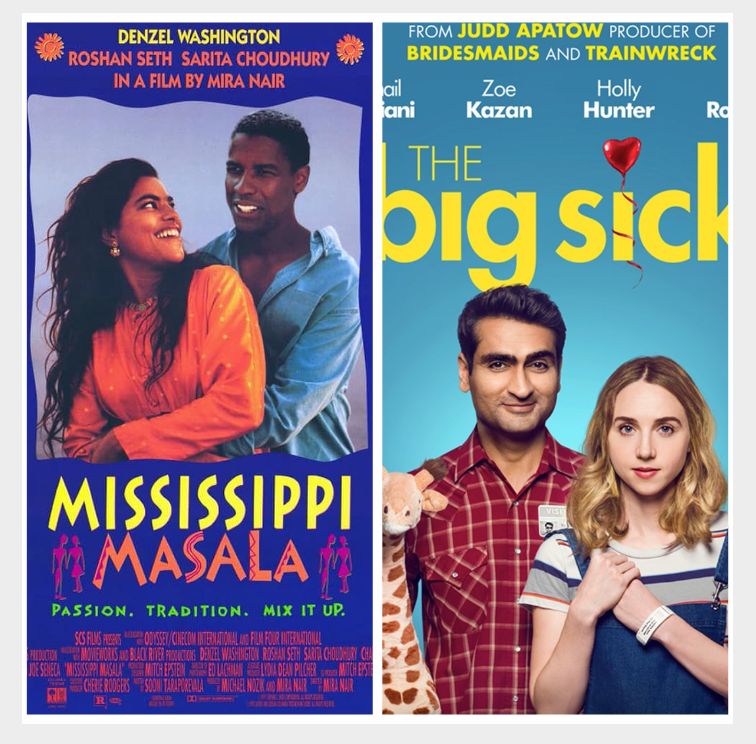Mississippi Masala (1991) and The Big Sick (2017) both tell stories about cross-cultural love, but they do so in very different ways, both in terms of tone and the cultural issues they explore. While both films touch on relationships that cross racial and cultural lines, their approaches are distinct.
Directed by Mira Nair, Mississippi Masala mixes drama and romance with a strong focus on social issues. The film is set in the American South and follows the love story between Demetrius, an African-American man, and Meena, an Indian woman. Their relationship is complicated by the racial tensions and cultural differences they face in a divided society. The tone is serious, and the film digs deep into themes of race, identity, and displacement. Through their romance, Mississippi Masala reflects the struggles of living in a society where cultural boundaries can feel impossible to cross, making the film much more of a socio-political drama than a lighthearted love story.
In contrast, The Big Sick, directed by Michael Showalter, is a romantic comedy-drama. Based on the real-life story of comedian Kumail Nanjiani and his wife Emily V. Gordon, it’s much lighter in tone but still deals with some heavy topics. The film centers on Kumail’s relationship with Emily, whose American background doesn’t quite align with his traditional Pakistani upbringing. While the film does touch on cultural differences and family expectations, it uses humor to address these struggles, making the story feel more accessible and heartwarming. The comedy doesn’t change the emotional depth of the film, but it certainly gives it a different, lighter feel than Mississippi Masala.
While both films explore cultural clashes, they come from different cultural contexts. Mississippi Masala focuses on the Indian-American experience within the African-American community in the South, where both Meena and Demetrius face racial and social barriers. Their relationship is also shaped by Meena’s family’s experience of being displaced from Uganda. In comparison, The Big Sick is more about Kumail’s internal struggle as a Pakistani-American trying to navigate the expectations of his traditional family and his new life in America. While Mississippi Masala digs into race relations in a more political sense, The Big Sick explores the personal negotiation between family loyalty and individual desire.
In conclusion, while both films highlight cross-cultural love, they approach it in very different ways. Mississippi Masala is a more serious, socially aware drama, while The Big Sick blends comedy with deeper emotional moments to explore cultural differences. Both films offer a unique perspective on love, identity, and family.

tatkins
Good compare and contrast! The discussion missing at this point is mise en scene and/or editing. How do they get their ideas across through composition, tone, pacing etc.? With that part pick a couple of examples only and describe in detail.
Scholarly sources?